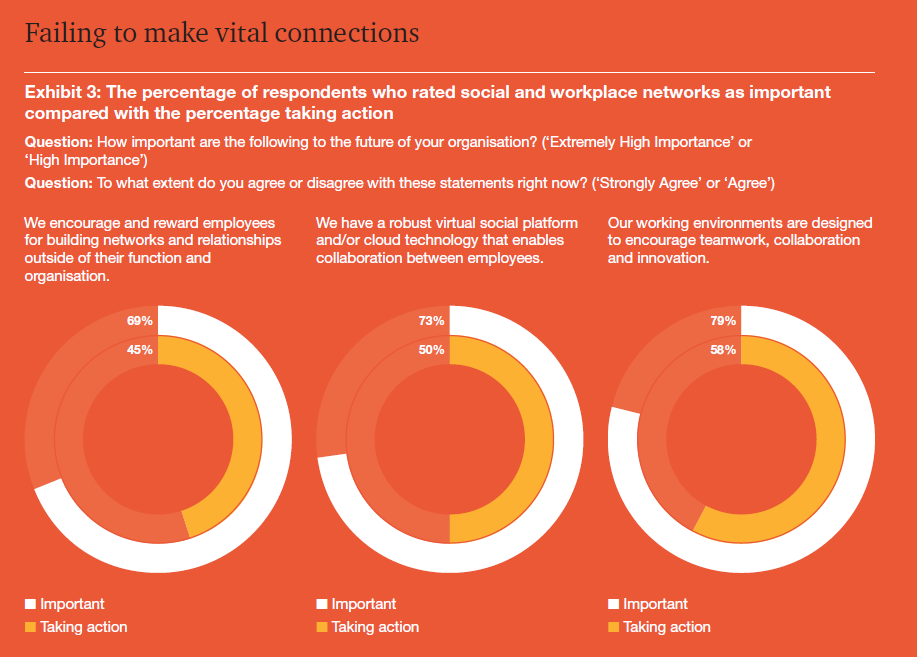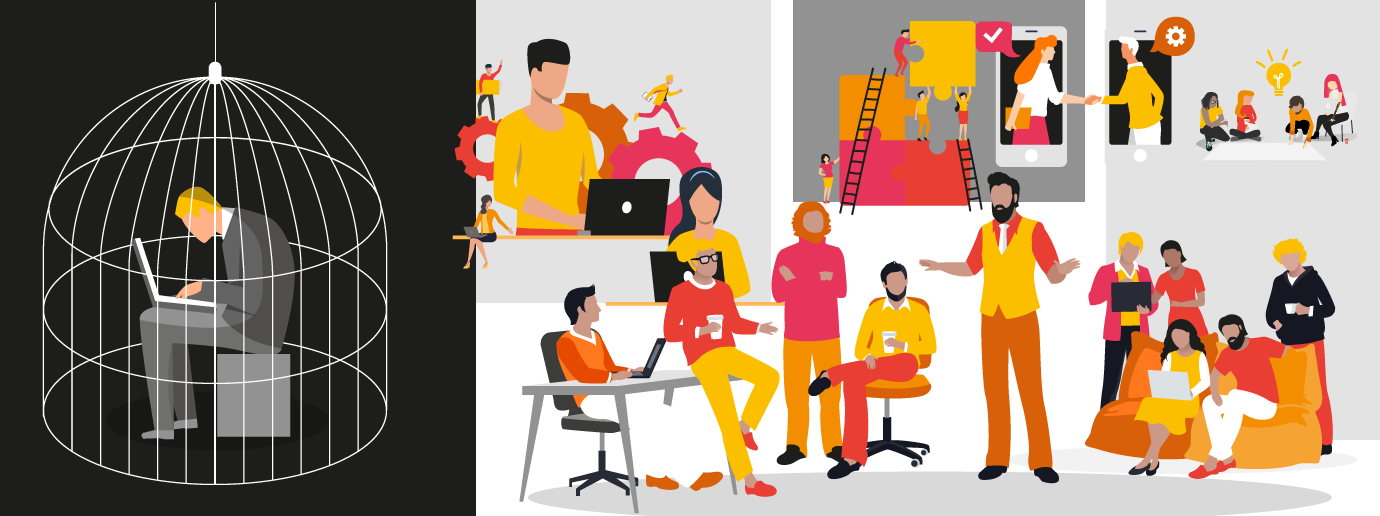Meaningful relationships are scarce.
Jonathan. He lives alone somewhere in a busy neighbourhood. He’s a very social person with many friends with whom he spends time almost daily. But he feels like something is missing. He isn’t fully connected to people and ends up with an indescribable sense of emptiness when he’s by himself. Who said that a busy social life can successfully fight loneliness?
The story of Giselle is slightly different. She also lives alone and occasionally meets a couple of faithful friends. When they meet, they have a great time with good discussions about current events in their personal lives and the sharing of thoughts and opinions on politics and sports are guaranteed. When she’s not at work or in the company of other people, she doesn’t feel lonely. In her free time, she engages in activities that interest and re-energise her.
A meaningful relationship is one that accompanies you when you are going through a desert.
Can you see where this is going? We are social creatures. But contrary to common belief, quantity very rarely translates into quality. People with large social circles can still feel alone at the end of the day.
Each person has their own level of social connectedness needed to combat loneliness. While the number of relationships can be only noise, the meaningful ones are written with the emotions and cognitive reactions that we gain through life. That’s key to redesigning loneliness.
Jonathan’s relationships don’t give him the feeling of connectedness. Giselle on the other hand, fully benefits from the occasional interactions with her friends, taking her relationships to a deeper level. When Giselle is home alone, she smiles feeling complete and energised.
In our previous article, Burn the burnout down, we shared with you the top five actions for better experiences at work. Tackling burnout was the first, followed by suggestions on how to maintain vitality at the workplace.
This time, we take a closer look at the second of these five actions: building social resilience. Loneliness is a growing issue in today’s society and its consequences go beyond the personal sphere. In this article we explore the impact of loneliness at the workplace and explore three key networks vital to workers’ productivity and well-being.
If you manage to incorporate these dynamics in your business, you’re already a step ahead on your future workforce plan.

According to Lynda Gratton, Professor of Management Practice at London Business School, together with our team at PwC Global, in their report Secure your future people experience, there are three key networks to tackle loneliness at the workplace.
Strike a “posse”
The ‘posse’ is a group of people in similar industries and roles that a person can turn to for advice.
Did you know that close work relationships boost employee satisfaction by 50%? And people with a best friend at work are seven times more likely to engage fully with their work? At work, meaningful relationships are impactful too!
However, in today’s workplace, interaction opportunities are reduced with the introduction of more flexible ways of working. Coworkers who previously shared the same building or lived in the same city, can now work from home or from anywhere around the world.
How can your business find the balance to harness the best of both flexible and more traditional working ways? There’s a need to transform the way they connect people, for example, by embedding collaborative technologies, such as internal virtual social platforms. This solution might work best in organisations that already have collaborative cultures. If your business isn’t quite there yet, you need to rethink your internal organisation, particularly when it comes to incentives.
In most corporations today, job design and performance management are based on individual accountability, despite the fact that most work is collaborative. When rewards for individual performance predominate, people are motivated to compete, not collaborate. They are more likely to keep knowledge rather than share it.
In contrast, when employees are rewarded for their learning, they’re motivated to build relationships and collaborate and explore new opportunities when interacting with others. It’s about building upon the input and ideas from others but also considering individual work on the equation. This is what you need to boost successful collaboration and nurture the ‘posse’: to move away from short-term performance indicators towards more forward-thinking learning rewards.
Stand out in a “big ideas crowd”
The ‘big ideas crowd’ is an extended and diverse group of people with whom a person has weaker ties.
Remember Jonathan? He has a large social circle, but still feels alone. Loneliness, as we previously mentioned, has a negative impact of creativity. Great ideas rarely come from a single mind; the person’s network helps fuels them, so he or she can create innovative products and services.
French mathematician, theoretical physicist and philosopher of science Henri Poincaré once said “Ideas rise in crowds. They rise in liquid networks, where connection is valued more than protection”. When people with comparable educational backgrounds or who are on the same team come together, they have good ideas.
But how can we go from good to great? By including people from other functional or organisational groups or even from cross-company collaborations. These two approaches bring new perspectives and opinions, they cause debate and discussion, make you challenge yourself and go deeper into your ideas.
To stand out in the ‘big ideas crowd’, we can simply think of the workshop concept from the Renaissance period. Artisans, painters and sculptors met and worked with architects, mathematicians, engineers, anatomists and scientists. The result was an environment that generated both social and economic value.
By creating coworking spaces alongside traditional offices, people from other companies and different businesses can come together in a physical space, even if they aren’t working on a related project. It gives employees the opportunity to think outside their designed box and traditional roles while building a diversified network.
Want the extra punch line? The ‘big ideas crowd’ also helps companies in times of flux. As
jobs are destroyed and new ones created in response to disruptive technological innovation, having a talent pool that can transform by drawing on diverse networks will help produce a more resilient organisation.
Dancing through our “regenerative community”
The ‘regenerative community’ includes people with whom a person has strong ties; it tends to be family or friends outside work. This beautifully-named network is essential to providing emotional support during hard times and it’s crucial to maintain a good resilience level.
According to this 80-year old Harvard University study, close relationships are what keep people happy throughout their lives, more than money and fame. They protect us from unexpected life setbacks, delaying both mental and physical decline. However, it’s very easy to overlook the importance and impact of these meaningful bonds in our daily lives.
Over the past few decades, the number of people with a close friend has been decreasing drastically. With the rush at the workplace and the pressure of deadlines gives people less time to establish relationships outside the workplace. Managers become important role models by showing their commitment to avoiding excessive workloads and minimising unpredictable hours.

